His office: Maliki and Barak met to discuss national entitlements and the political landscape.
His office: Maliki and Barak met to discuss national entitlements and the political landscape.
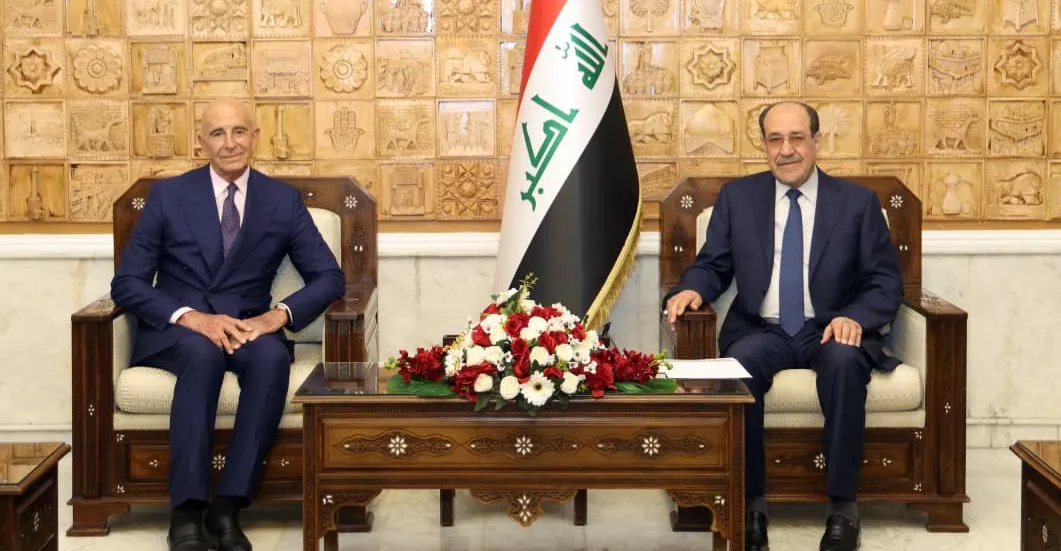 On Friday, Nouri al-Maliki, leader of the State of Law Coalition, discussed with US Special Envoy to Syria, Tom Barrack, the developments in the political scene in Iraq and the upcoming national entitlements.
On Friday, Nouri al-Maliki, leader of the State of Law Coalition, discussed with US Special Envoy to Syria, Tom Barrack, the developments in the political scene in Iraq and the upcoming national entitlements.
A statement from al-Maliki’s office, received by Shafaq News Agency, said that “al-Maliki stressed during the meeting the importance of supporting the democratic process and strengthening political stability, emphasizing the need to respect Iraq’s sovereignty and the choices of its people, while the continuation of communication and coordination between the two sides on files of common interest was emphasized.”
According to the statement, Barak also pointed to “the importance of the role that Iraq plays in the process of resolving the region’s problems, reducing the intensity of the conflict , supporting dialogue, and fighting terrorism.”
These talks come at a time when the political forces that won the elections in late 2025 are seeking to resolve the issue of candidates for the positions of President of the Republic and Council of Ministers, and to proceed with the procedures for forming the new government, steps which are legally known as the postponed “constitutional entitlements” .
This comes in conjunction with the United States giving the Shiite Coordination Framework a deadline last Tuesday, which ends today, Friday, regarding the withdrawal of the nomination of the leader of the State of Law Coalition, Nouri al-Maliki, for the position of Prime Minister, according to what an official source in the framework told Shafaq News Agency .
He added that “Al-Maliki informed the framework that he does not intend to withdraw his nomination at all, and informed them that the (two-thirds) who nominated Al-Maliki should withdraw the nomination and he does not object to that, and this is the closest thing to the scene during the next few days .”
The “coordination framework,” which includes ruling Shiite political forces in Iraq, is witnessing a division over the nomination of Maliki for the next government, amid American warnings of the repercussions of his selection, which prompted forces within the coalition to try to persuade him to withdraw in order to preserve the unity of the framework.
Shafaq.com
A government advisor reveals the roadmap for transitioning from a rentier economy.
A government advisor reveals the roadmap for transitioning from a rentier economy.
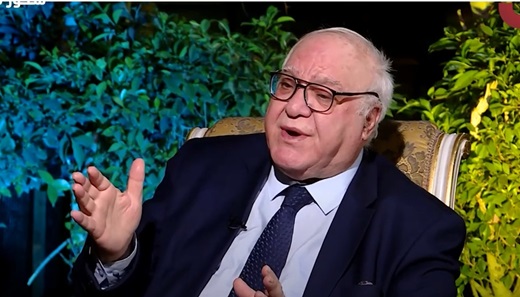 The Prime Minister’s financial advisor, Mazhar Muhammad Saleh, affirmed that the shift away from oil is not merely an option, but an existential and strategic necessity to ensure financial and social stability, especially in light of global energy price fluctuations. He explained that relying on a single resource makes the economy vulnerable to external shocks, which requires genuine diversification, not just a passing reformist approach.
The Prime Minister’s financial advisor, Mazhar Muhammad Saleh, affirmed that the shift away from oil is not merely an option, but an existential and strategic necessity to ensure financial and social stability, especially in light of global energy price fluctuations. He explained that relying on a single resource makes the economy vulnerable to external shocks, which requires genuine diversification, not just a passing reformist approach.
Saleh told Al-Furat News Agency that “the success of this transformation requires deep structural reforms, high investments in infrastructure, and real empowerment of youth through education and technology, so that Iraq can be a diversified and sustainable economic player,” noting that the first pillars of diversification begin with reviving the agricultural sector through efficient management of the Tigris and Euphrates river resources, modernizing digital irrigation systems, and supporting food industries in a way that enhances food security and reduces imports.
He added that the manufacturing industry represents the most important entry point for adding local value to raw materials, through the development of small and medium industries in the fields of pharmaceuticals, textiles and building materials, noting that the digital economy stands out as a qualitative opportunity for Iraqi youth through supporting startups and linking education to the needs of the digital labor market to create a high-value and low-cost sector.
He added that Iraq possesses great tourism assets, religious and archaeological, which can be transformed into an important source of foreign currency, in addition to developing the transport and logistics sector through strategic projects such as the “Development Road,” which will reposition Iraq as a trade corridor linking the Gulf with Turkey and Europe. He explained that the current challenges are represented by the excessive dependence on oil, which accounts for more than 90% of revenues, weak infrastructure, and a skills gap.
Saleh stressed that success requires gradual financial and institutional reforms, similar to the banking reform currently being led by the government and the central bank, while encouraging the building of a diversified productive base over a decade that represents the “foundation decade for accelerated diversification” in accordance with the paths of Iraq’s 2050 vision, stressing that the transition to a sustainable economy is the only way to ensure true economic sovereignty and fair opportunities for future generations.
Alforatnews.iq
Baghdad “thanks” Tehran for keeping it informed about the progress of the “Geneva negotiations”.
Baghdad “thanks” Tehran for keeping it informed about the progress of the “Geneva negotiations”.
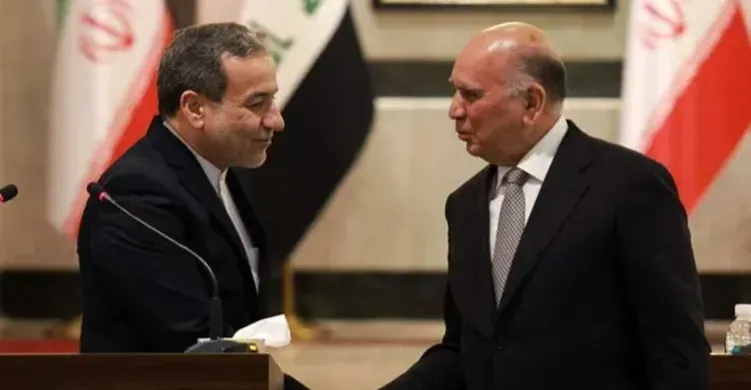 The Iraqi Foreign Ministry announced on Friday that Minister Fuad Hussein discussed with his Iranian counterpart Abbas Araqchi the latest developments in the negotiations with the American delegation that took place in Geneva on Thursday.
The Iraqi Foreign Ministry announced on Friday that Minister Fuad Hussein discussed with his Iranian counterpart Abbas Araqchi the latest developments in the negotiations with the American delegation that took place in Geneva on Thursday.
According to a statement from the ministry received by Shafaq News Agency, “During a telephone call with Fuad Hussein, Araqchi reviewed all the developments related to the progress of the talks, explaining the content of the discussions that took place, the next steps, as well as the expected timings for the meetings of the technical committees and the negotiating committee.”
The statement added that “Fuad Hussein expressed his thanks and appreciation for being briefed on the course of the negotiations, praising the progress made in the Geneva talks, and stressing the importance of continuing the dialogue as the best way to address the outstanding issues.”
According to the statement, both sides stressed that “negotiations represent the most appropriate way to resolve problems, emphasizing the need to keep the region away from the dangers of escalation and war, and to maintain regional security and stability.”
At the end of the call, both parties agreed to “continue coordination and consultation during the next sensitive phase.”
Araghchi had confirmed that the Geneva talks on Thursday were among the most serious talks, revealing that another meeting would be held next Monday.
Araghchi said in press statements following the talks, as reported by Shafaq News Agency: “We have made good progress on the nuclear file and lifting the sanctions. There is agreement on some points and disagreements as well. We have technical discussions in Vienna next Monday with experts from the International Atomic Energy Agency.”
Araghchi added, “We clearly expressed our demand regarding the lifting of US and Security Council sanctions, what needs to be done, and the process of easing them. Each party needs to consult with its government,” stressing that “these talks were the most serious and we made good progress.”
The third round of indirect negotiations between Iran and the United States began yesterday, Thursday, in Geneva, mediated by the Sultanate of Oman, amid indications that the talks will continue and that a fourth round is possible.
Shafaq.com
The United Nations recognizes the validity of Iraqi nautical charts.
The United Nations recognizes the validity of Iraqi nautical charts.
 On Friday, Abdul Sattar Fawaz Al-Dulaimi, a leader in the Azm Alliance, revealed that the United Nations had informed Kuwait, in an unannounced manner, of its recognition of the validity of the Iraqi maritime maps deposited with it, confirming that they are sound and documented with official evidence that leaves no room for doubt.
On Friday, Abdul Sattar Fawaz Al-Dulaimi, a leader in the Azm Alliance, revealed that the United Nations had informed Kuwait, in an unannounced manner, of its recognition of the validity of the Iraqi maritime maps deposited with it, confirming that they are sound and documented with official evidence that leaves no room for doubt.
Al-Dulaimi told Al-Maalouma News Agency, “The United Nations has confirmed the validity of all the maritime maps submitted by Iraq, which prove its right to manage the Khor Abdullah crossing and other maritime sites that Kuwait tried to control, taking advantage of the collapse of the security situation in the past period.”
He pointed out that “Iraq’s depositing of these maps with the United Nations sparked a diplomatic controversy with Kuwait,” stressing that “the maps clearly demonstrate, beyond any doubt, that these areas have belonged to Iraq for centuries, according to official documents.”
He added that “the Kuwaiti government quickly tried to transfer the maps to rogue states in an attempt to manipulate Iraq’s officially documented properties.”
Al-Dulaimi concluded by asserting that “Kuwait’s approach to these countries is a transparent and clearly defined charade, and it cannot be allowed to pass.”
Almaalomah.me
The son of the Speaker of Parliament is leading the smuggling of gasoline to the northern provinces.
The son of the Speaker of Parliament is leading the smuggling of gasoline to the northern provinces.
 An official source in Anbar province revealed on Friday that new smuggling operations of improved gasoline were recorded from the western cities of the province towards the northern provinces, with the support and coordination of the son of a prominent government official and a leader in the Progress Party headed by Mohammed al-Halbousi.
An official source in Anbar province revealed on Friday that new smuggling operations of improved gasoline were recorded from the western cities of the province towards the northern provinces, with the support and coordination of the son of a prominent government official and a leader in the Progress Party headed by Mohammed al-Halbousi.
The source told Al-Maalomah News Agency that “the western regions witnessed smuggling operations of improved gasoline towards the northern governorates with high-level support and coordination by the son of the Speaker of Parliament, Hebat Al-Halbousi, through the sale of quotas of dozens of private fuel filling stations, most of which are fictitious.”
He added that “government and private fuel filling stations in Anbar cities have stopped supplying improved gasoline under the pretext of insufficient supplies from Baghdad, while smuggling operations are carried out by smugglers supported by the Progress Party and political parties in the Kurdistan Region.”
He indicated that “the son of the Speaker of Parliament is in charge of managing the smuggling of premium and regular gasoline, as well as black and white oil, through complex routes to the northern provinces.”
Almaalomah.me
Judge Zaidan discusses with the US envoy the completion of “constitutional entitlements” in Iraq
Judge Zaidan discusses with the US envoy the completion of “constitutional entitlements” in Iraq
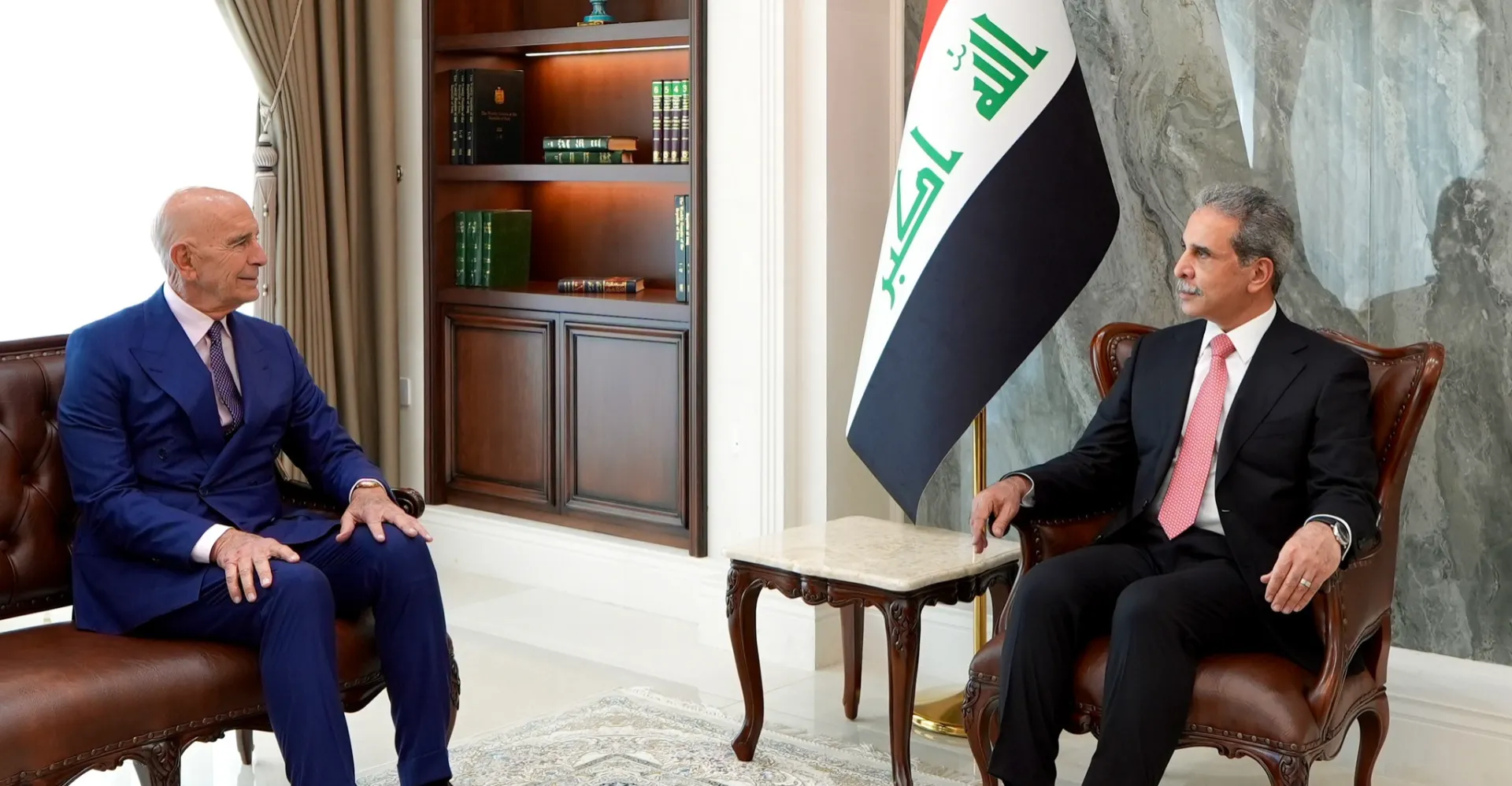 The head of the Supreme Judicial Council, Judge Faiq Zaidan, discussed with US Special Envoy Tom Barrack on Friday the role of the judiciary in supporting efforts to complete the remaining constitutional requirements during the next phase.
The head of the Supreme Judicial Council, Judge Faiq Zaidan, discussed with US Special Envoy Tom Barrack on Friday the role of the judiciary in supporting efforts to complete the remaining constitutional requirements during the next phase.
This is the second meeting of its kind in a week; it was preceded by a meeting last Monday that addressed judicial procedures related to the file of detainees transferred from Syrian prisons to Iraq, according to official statements issued by the Council.
These talks come at a time when the political forces that won the elections in late 2025 are seeking to resolve the issue of candidates for the positions of President of the Republic and Council of Ministers, and to proceed with the procedures for forming the new government, steps which are legally known as the postponed “constitutional entitlements”.
This comes as the United States gave the Shiite Coordination Framework a deadline last Tuesday, which ends today, Friday, regarding the withdrawal of the nomination of the leader of the State of Law Coalition, Nouri al-Maliki, for the position of Prime Minister, according to what an official source in the framework told Shafaq News Agency.
He added that “Al-Maliki informed the framework that he does not intend to withdraw his nomination at all, and informed them that the (two-thirds) who nominated Al-Maliki should withdraw the nomination and he does not object to that, and this is the closest thing to the scene during the next few days.”
The “coordination framework,” which includes ruling Shiite political forces in Iraq, is witnessing a division over the nomination of Maliki for the next government, amid American warnings of the repercussions of his selection, which prompted forces within the coalition to try to persuade him to withdraw in order to preserve the unity of the framework.
The US President’s envoy, Thomas Barak, had informed the Iraqi side during his visit to Baghdad a few days earlier of the American vision regarding the formation of the Iraqi government.
The escalating American pressure on Iraq comes as a translation of President Donald Trump’s explicit threats, which included criticism of the previous course taken by former Prime Minister Nouri al-Maliki, when he assumed the premiership during two consecutive terms between 2006 and 2014.
On January 24, 2026, the Coordination Framework announced the nomination of Nouri al-Maliki, head of the State of Law Coalition, for the position of Prime Minister, with a majority vote from its constituent groups.
Shafaq.com
The Electoral Commission honors Shafaq News for its “pioneering role” in covering the parliamentary elections.
The Electoral Commission honors Shafaq News for its “pioneering role” in covering the parliamentary elections.
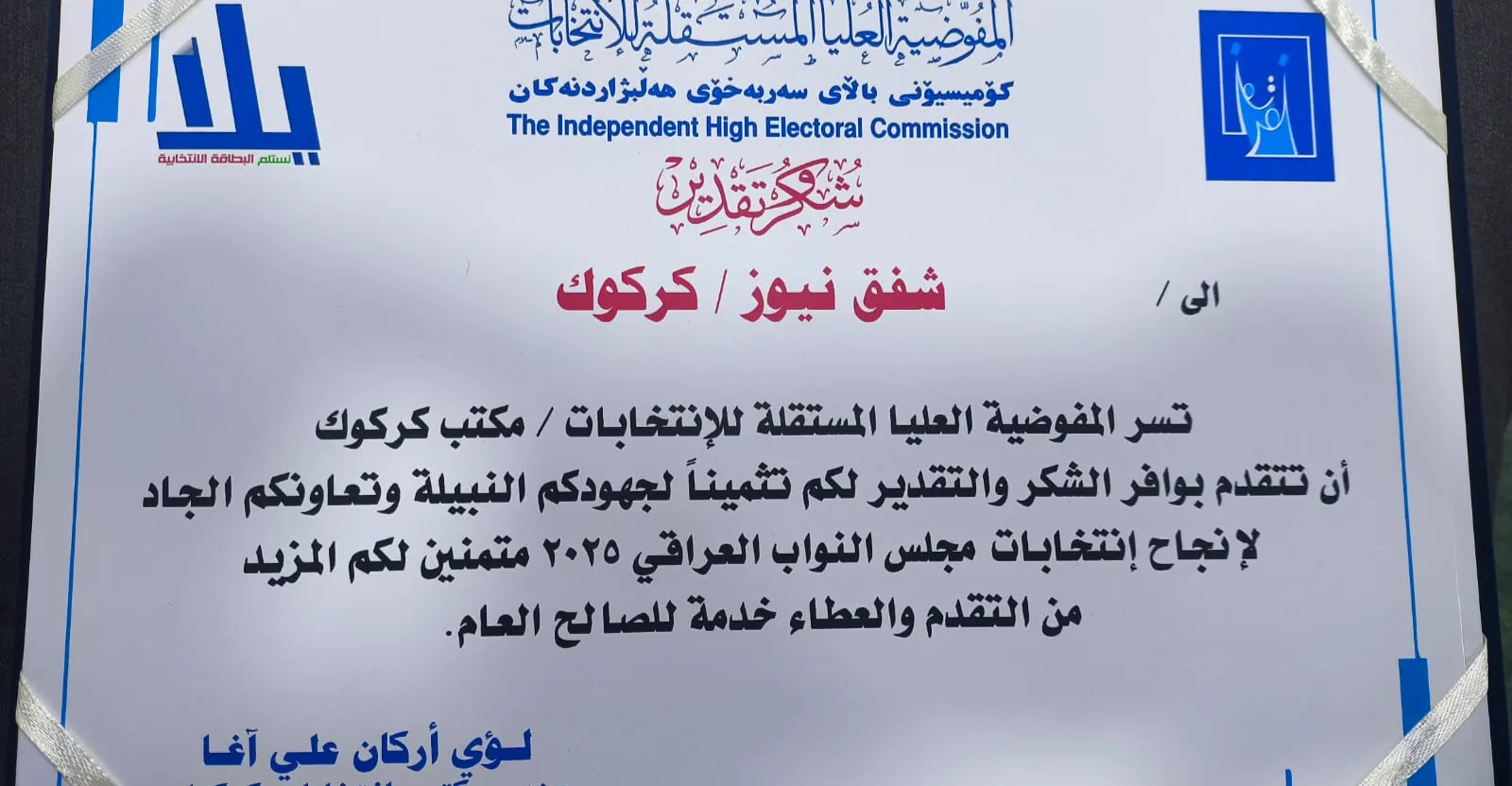 The Independent High Electoral Commission in Kirkuk praised on Wednesday the press coverage provided by Shafaq News Agency during the parliamentary elections held in November 2025, stressing that the agency played a “leading role” in this field.
The Independent High Electoral Commission in Kirkuk praised on Wednesday the press coverage provided by Shafaq News Agency during the parliamentary elections held in November 2025, stressing that the agency played a “leading role” in this field.
The director of the commission’s office in Kirkuk, Luay Arkan, told Shafaq News Agency that “the commission was keen to honor the media institutions that had an active and professional presence during the election period, given the media’s essential role in promoting transparency and building voters’ confidence in the democratic process.”
He added that “Shafaq News Agency played a leading and distinguished role in covering the parliamentary elections, through continuous field monitoring and conveying news accurately and objectively, which contributed to conveying a clear picture of the progress of the electoral process in the governorate.”
Arkan noted that “the Commission emphasizes the importance of continuing cooperation with the media during the upcoming elections, in order to enhance electoral awareness and serve the public interest.”
Shafaq.com
The US administration reiterates its rejection of Maliki’s nomination: his government will not keep Iraq free from conflicts.
The US administration reiterates its rejection of Maliki’s nomination: his government will not keep Iraq free from conflicts.
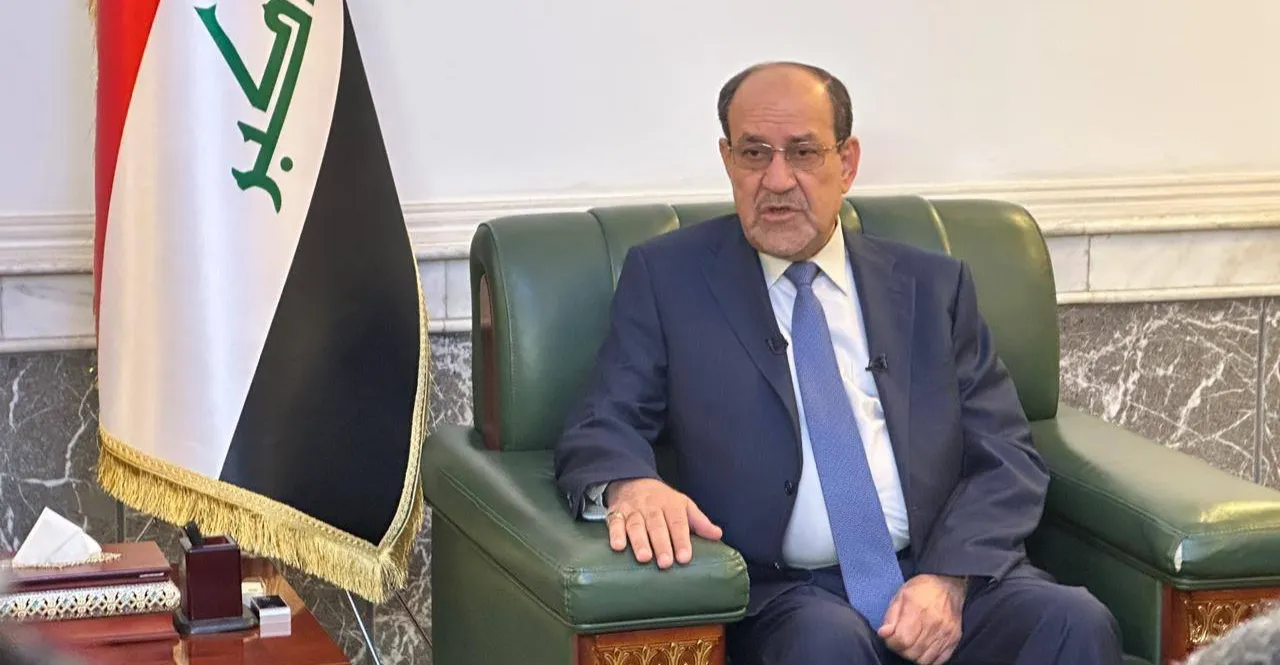
A senior White House official reiterated the US administration’s position rejecting the nomination of Nouri al-Maliki, head of the State of Law Coalition, for the position of Prime Minister of Iraq.
The Middle East newspaper quoted the official in its Wednesday edition as saying, “The United States stands with Iraq in its quest to achieve its full potential as a force for stability, prosperity and security in the Middle East.”
He added that “a government controlled by Iran cannot put Iraq’s interests first, keep Iraq out of regional conflicts, or promote a mutually beneficial partnership between the United States and Iraq.”
An official source within the Shiite coordination framework revealed yesterday, Tuesday, in a statement to Shafaq News Agency, that “the framework obtained a new extension of the American deadline for withdrawing al-Maliki’s nomination.”
He added that the deadline “will end next Friday,” noting that “Maliki has informed the framework that he does not intend to withdraw his nomination at all, and informed them that the (two-thirds) who nominated Maliki should withdraw the nomination and he does not object to that, and this is the closest thing to the scene during the next few days.”
The “coordination framework,” which includes ruling Shiite political forces in Iraq, is witnessing a division over the nomination of Maliki for the next government, amid American warnings of the repercussions of his selection, which prompted forces within the coalition to try to persuade him to withdraw in order to preserve the unity of the framework.
The escalating American pressure on Iraq comes as a translation of President Donald Trump’s explicit threats, which included criticism of the previous course taken by former Prime Minister Nouri al-Maliki, when he assumed the premiership during two consecutive terms between 2006 and 2014.
On January 24, 2026, the Coordination Framework announced the nomination of Nouri al-Maliki, head of the State of Law Coalition, for the position of Prime Minister, with a majority vote from its constituent groups.
Shafaq.com
Iraq’s oil revenues exceed $6 billion in one month
Iraq’s oil revenues exceed $6 billion in one month
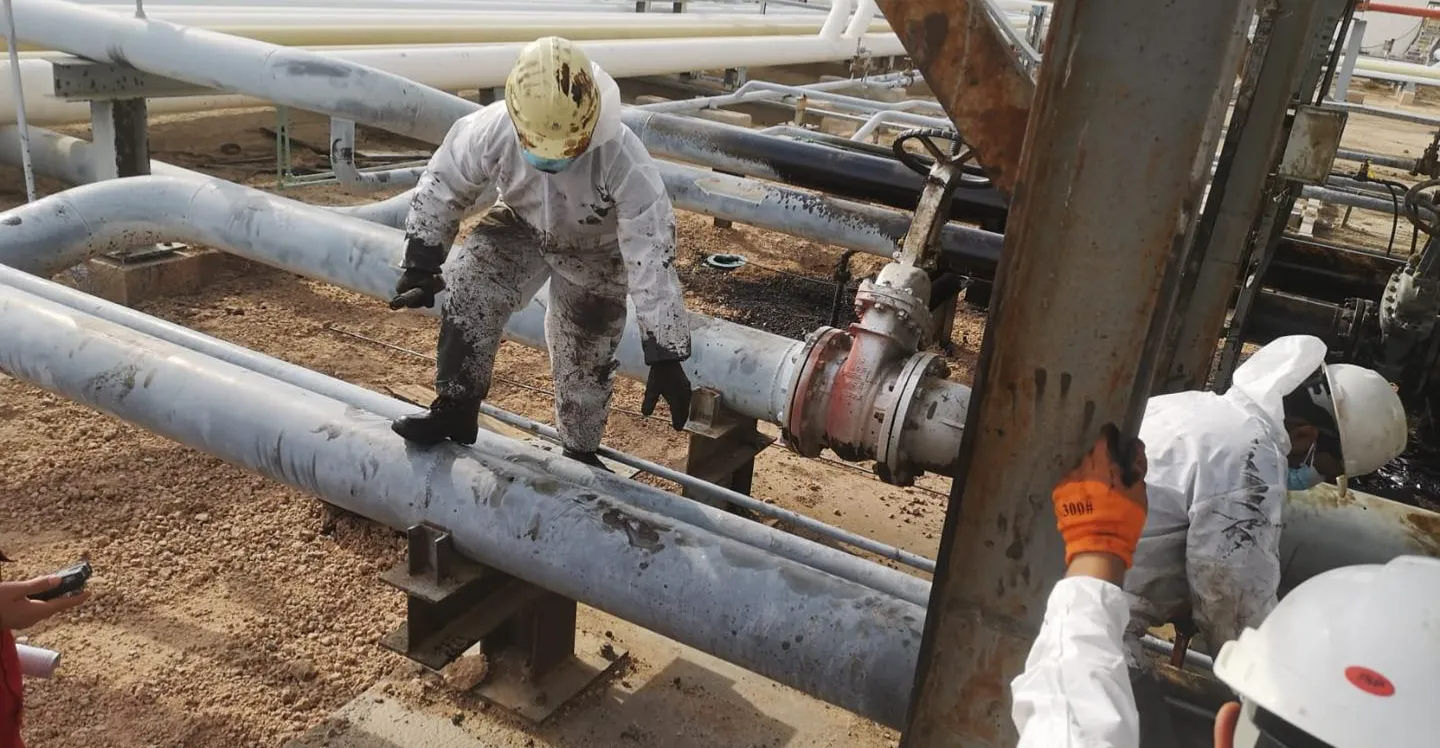 The Ministry of Oil announced on Wednesday the total oil exports and revenues achieved for the month of January, according to the final statistics issued by the Iraqi Oil Marketing Company “SOMO”.
The Ministry of Oil announced on Wednesday the total oil exports and revenues achieved for the month of January, according to the final statistics issued by the Iraqi Oil Marketing Company “SOMO”.
SOMO said in a statistic seen by Shafaq News Agency that the quantities of crude oil exports amounted to 107 million, 616 thousand and 220 barrels, with revenues amounting to $6 billion, 485 million and 294 thousand dollars.
The statistics indicated that the total quantities of crude oil exported for the month of January from the oil fields in central and southern Iraq amounted to 101 million, 160 thousand and 349 barrels, while exports from the Kurdistan Region via the port of Ceyhan amounted to 6 thousand and 445 barrels.
According to the statistics, no quantity of oil was exported to Jordan or the Qayyarah field during the past month.
Shafaq.com
